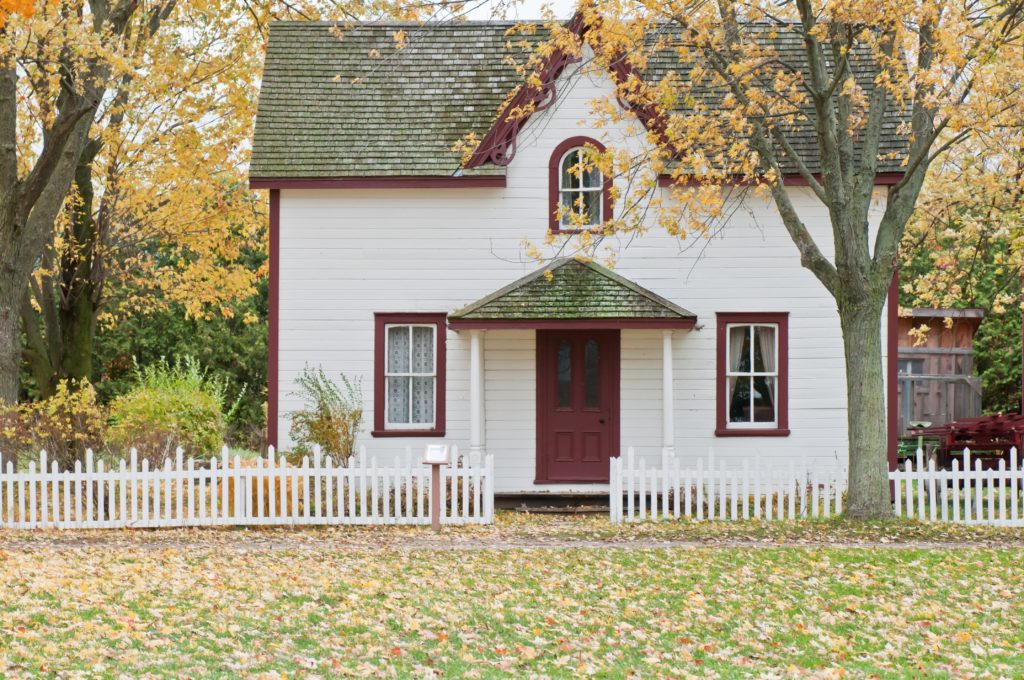Whether you’re looking to purchase a primary residence or an investment property, there’s a good chance you’re thinking about taking out a home loan in order to finance the purchase. Even if you have the cash to buy a property outright, there are a number of benefits to getting a mortgage over making an all-cash purchase. These include having the ability to leverage your debt, allowing you to invest more of your money elsewhere, and offering some tax advantages. That's why it's critical to learn exactly how to qualify for a mortgage.
Getting a mortgage can be stressful, but the whole process will go much more smoothly if you are aware of the requirements and take the time to prepare before you apply.
Are you wondering how to qualify for a mortgage? How do the requirements differ for a primary residence mortgage vs a rental property mortgage?
Let’s take a look at the answers to these questions and more below to help boost your chances of receiving the financing you need.
Before we dive into how to qualify for a mortgage for a rental property, let’s take a look at lender requirements for primary residences. There are many similarities between what you need to qualify for a mortgage between a residential property and a rental property. However, it’s important to understand that being approved for an investment property mortgage typically means you will need to meet stricter requirements.
When you apply for a mortgage, one of the first things that lenders will look at is your household income. They will want to make sure that you are making enough money to predictably make your monthly mortgage payments in addition to your other bills and expenses.
Lenders aren’t just going to take a look at your salary, though. They will also incorporate other regular and reliable income, including:
One of the primary things lenders are looking for is consistency in your income. This means that they often won’t take certain streams of income into account unless they can reasonably expect that it will continue consistently for at least another two years.

The mortgage qualification process also will include lenders taking a look at any assets you have. They do this in order to ensure that you will be able to keep paying them even if you run into some financial problems.
Some assets that lenders might look at include:
During the process of applying for a mortgage, lenders might ask you to provide proof for the different assets you own.
Looking at your income isn’t enough for lenders to know that you will be able to cover your mortgage payments consistently. They also need to know what your obligations are in the form of monthly debt payments and other regular expenses.
For this reason, an essential piece of the puzzle to lenders is your debt-to-income ratio (DTI). This is a percentage that quantifies how much of your gross monthly income has to go to fixed payments each month.
The higher your DTI, the less attractive you will be to mortgage lenders, and vice versa. Different lenders have different requirements when it comes to DTI ratios, but you can expect you will need to have at least a DTI ratio of 50% or less in order to stand a chance.
Another important factor when it comes to whether or not you qualify for a mortgage, as well as the terms offered to you, is your credit score.
When you have a high credit score, it indicates to lenders that you make your payments on time, you don’t have spending problems, and you haven’t burdened yourself with more debt than you can handle. If your credit score is low, lenders can take that as a sign that you take on too much debt or don’t pay your bills on time regularly.
If you apply for a mortgage with a good credit score, it can mean you have access to the lowest interest rates and the widest variety of options when it comes to loan types.
For most types of loans, you’ll need at least a 620 FICO Score. If you have a credit score that is lower than 620 and you’re trying to buy a primary residence, an FHA loan might be a good option. For people who are currently in the military or are veterans, a VA loan is another government-backed loan with lower credit score requirements.
Lastly, the kind of property you’re trying to purchase will impact whether or not you qualify for a mortgage. Primary residences are by far the easiest type of property to get a mortgage for. A primary residence is defined as a property that you are planning on living in for the majority of the year.
Lenders see primary residences as less risky. This means that they have less strict qualification requirements than other property types. It’s also worth noting that some of the government-backed loans available can only be used for primary residences.
If you’re buying an investment property or a second home, though, there are higher standards for your credit score, your DTI, and your down payment. The reason for this is that they are riskier endeavors for lenders. The thinking here is that, if an individual runs into financial trouble, they will be much more likely to prioritize payments on the home they actually live in rather than a second home or a rental property.

When mortgage lenders and banks are underwriting loans, they make a clear distinction between types of property. If you are buying an investment property for the first time, you might assume that getting a mortgage is exactly the same as when you purchased your primary residence. Unfortunately, this is not the case.
It is typically much easier to qualify for a residential, primary home mortgage than it is to qualify for a rental property mortgage. The reason for this is because of the amount of risk the lender feels that they are taking on.
When you are buying a primary residence, lenders know who will be living in the home and can have a relatively accurate sense of how much risk they are taking on. When you are buying a rental property, they have no way of knowing who will actually be occupying the property. They compensate for this unknown factor by holding borrowers to a higher standard for rental properties versus primary residences.
If you’re new to the world of mortgages, it’s important to understand that home loans are amortized loans. Check out this article to learn more about amortization.
When you are buying a primary residence, you might be able to make a down payment as small as 3%. How much you have to put down depends on the loan program and lender you are using. However, down payments of less than 20% require that you pay private mortgage insurance, which exists to help protect the lender if you end up defaulting on the loan repayments.
When you buy rental or investment properties, though, PMI doesn’t apply. This means that there’s a good chance you’ll have to put down at least 15% or 20% if you seeking a mortgage for an investment property. For certain types of properties, you might have to put down at least 25%.
You’ll also want to factor in closing costs and any other additional fees when you’re thinking about how much a property is going to cost you upfront.
Having a reliable team is an essential ingredient to long-term success as a real estate investor. One of the most important parts of that team is the lender you choose.
Finding the right lender can make a big difference in how smoothly the process goes for you. Some brokers will primarily work with primary residence loans, meaning that they might not have a deep understanding of the investing landscape.
Before choosing a lender, consider asking them a few questions to make sure they are friendly to investors. You might ask them how if they are currently working with any active investors, the limit for how many loans they can offer to an individual investor, and even if they are invested in properties personally.
Another important distinction between a mortgage for your primary residence and an investment property is that your interest rate on the loan will likely be a bit higher for the latter than the former. In an environment where interest rates are on the low side, this can mean that the mortgage rate for an investment property can still be relatively low.
In general, you’ll find that the mortgage rate for rental properties tends to be about three-quarters of a percent above what the rate would be if you were buying a primary home.
If you are planning on building a rental empire, you’ll want to familiarize yourself with the limitations imposed by various lenders. Currently, Fannie Mae allows each real estate investor to carry no more than ten loans at one time. A lot of lending institutions, though, will only lend an individual a maximum of four loans.
If you are interested in maxing out your ten loan limit through Fannie Mae, you’ll want to start digging around for a lender that is willing to let you carry ten loans simultaneously.
The credit requirements will get stricter the more loans you have. While Fannie Mae allows each investor to have up to ten loans at a time, there are actually two different guidelines when it comes to credit qualification in order to obtain loans.
The first qualification is for the first four properties an investor purchases using financing. In this instance, investors need to have a credit score of at least 620. However, for properties five through ten, the requirements are raised to 720.
There are also two sets of guidelines when it comes to the down payment you are required to make based on how many property loans you have taken out.
If you are working to finance a single-family home, you are required to pay 20% down for loans one through four. For loans five through ten for single-family homes, you are required to put 25% down.
The requirements are a bit more strict for multi-family properties. In the case of multi-family units, you’ll need to put 25% down regardless of whether it’s your first or tenth loan. It’s worth noting, though, that a lot of lenders will require 30% for multi-family buildings for loans five through ten.
You don’t just want to have cash on hand in order to make your sizable downpayment for a rental property. Lenders will also need to know that you have at least six months of cash reserves tucked away to float each investment property, just to make sure you're fine if something disturbs the property's cash flow situation.
What does this mean exactly? It means that, if you own a primary residence and you’re trying to purchase an investment property, you’ll need to have enough cash tucked away to be able to cover six months of mortgage payments for both the rental property and your primary residence.
In order to plan ahead for this requirement, you’ll want to get a sense of the price point you’re interested in for your rental property. Then, check with a lender to get a rough estimate of the monthly payment you can expect. This can give you an idea of how much you should be working to save in order to qualify for a mortgage.
You’re going to need at least two years of W-2 income to show lenders when you are trying to qualify for a rental property mortgage. They will want to know that you have been working the same industry or working in the same job for a minimum of two years.
Your annual income will be calculated by underwriters by averaging the previous two years of your gross income. As an example, let’s say that you made $125,000 this year and $75,000 the previous year. In this case, your average annual income would be calculated as $100,000.
For individuals who are self-employed, you’ll need to be able to show lenders your tax returns for the previous two years in addition to a year-to-date profit and loss statement. On top of that, lenders will often require that you submit a letter from your CPA which confirms that your previous tax returns are valid and accurate.
With this information, lenders will average your annual income in the same way they would if you were an employee that receives a W-2.
If you are worried that your income won’t qualify you to take out a rental property mortgage, there’s another vital piece of information to add to the equation. Some, but not all, lenders will allow you to count up to 75% of your projected rental property income towards your income. The remaining 25% is not included in order to account for potential vacancies.
Qualifying for a rental property mortgage is more difficult than qualifying for a primary residence mortgage. Basically, you will need to meet all of the requirements discussed above and then some. Let’s take a look at what you need to know in order to get approved for your next investment property.
When you finance a rental property, you’ll need to be able to manage the mortgage of the rental property and the mortgage or rent for your primary residence. Let’s take a look at the specific qualifications generally required by lenders. That being said, it’s important to understand that different lenders can have different rubrics by which they assess potential borrowers.
Lenders typically require that your credit score be at least 620 if you are looking to buy a rental property. If you want to lock in the best terms and interest rates, though, you’ll want your credit score to be 740 or higher. This is the range when your score is considered to be “very good” rather than simply “good.”
As discussed above in relation to financing your primary residence with a mortgage, lenders will also look at your DTI if you want to buy a rental property. The ideal range for your DTI for an investment property is between 36% and 45%.
You might be able to use 75% of your projected monthly rental income to make your DTI more favorable, but this depends on the lender. However, lenders will be less likely to do this if you don’t have a proven history of producing rental income as a landlord. If this is the case, then you might need to qualify for the mortgage based solely on your personal income.
When you’re buying a primary residence, you might be able to get away with putting as little as 3% down with the trade-off of paying private mortgage insurance. However, properties you purchase as a rental or investment require that you put down a larger downpayment. Typically, you will be expected to pay at least 20% down for a rental property, and potentially more for multiunit properties.

Having money in the bank is key if you want to qualify for an investment property mortgage. As mentioned above, you’ll want to have at least six months' worth of money saved up in a liquid bank account in order to cover all of your mortgage obligations.
Conventional mortgages aren’t the only option when it comes to financing a rental property. In this section, we’ll discuss the different options (including conventional loans) for borrowing money in order to purchase an investment property.
Conventional mortgages are home loans that conform to the guidelines set by Freddie Mac or Fannie Mae. These loans are not backed by the federal government, unlike FHA, VA, or USDA loans.
You will typically be expected to make a downpayment between 20% and 30% of the property’s purchase price for an investment property. As discussed above, your income, assets, DTI, credit score, and credit history will be key factors in whether or not you are approved for the loan.
Most lenders will expect that you will have at least six months worth of cash saved in order to cover the cost of both of your mortgages.
If you would prefer not to get a conventional loan or you don’t think you’ll qualify, you might also consider a private money loan. These are loans made between individuals. One of the most common sources of private money loans for real estate investors is from family members or friends.
If you don’t have friends or family that are willing to loan you money, though, you aren’t entirely out of luck. Joining a local real estate investment club can be a good way to network with local investors who might be interested in providing a loan.
The interest rates and terms for private money loans can range widely depending on the party you choose to borrow from. This type of loan is usually backed by a contract that gives the person lending you money the right to foreclose on your property if you end up defaulting.
If you haven't ever invested in real estate before, it's a good idea to be very considerate of the way that borrowing money can change the relationship you have with the lender. Mixing money and personal relationships can cause more problems than you might imagine, and you won't want to make the decision to borrow money from a friend or family member flippantly.
Hard money loans are typically more suited to buying investment properties to flip rather than renting, buying and holding, or developing. This is because they are short-term loans with high-interest rates. However, they can be easier to qualify for than conventional loans.
Some investors might choose to take out a hard money loan and then pay it off quickly by taking out a conventional loan, home equity loan, or a private money loan. However, the simpler route would be to start off with one of these other options if possible.
Lastly, you also might consider tapping into your home equity in order to finance an investment property. You can do this through a home equity line of credit (HELOC), a home equity loan, or a cash-out refinance. Usually, homeowners can borrow up to 80% of the equity value of their homes.
If you wander around the internet a bit, you’ll likely find strong proponents of both the “all-cash” and “buy with financing” tactics for buying rental properties. For some individuals, buying with cash simply isn’t an option. In these cases, finding financing from a mortgage lender or through another tactic such as a private loan will be necessary.
For people who can afford to buy rental properties in cash, though, there are a number of pros and cons for each option.
Some investors are big proponents of using financing to purchase investment properties, regardless of whether or not you theoretically could afford to buy them in cash. One of the main reasons for this is the potential for higher returns and lower risk.
If you only have to put a percentage of the sale price down towards a property and can finance the rest, it means you can invest in more rentals with the same amount of money that you could use to buy one property outright. It also means that you can invest some of your money in other places, increasing the diversity of your investment portfolio.
Essentially, being a leveraged investor can offer you more opportunities than being an all-cash investor. It also means that your money can be diversified over several properties rather than tied up in just one. This diversification, in the long run, could potentially increase your rate of return.
On the downside, there are definitely risks to being leveraged. If your properties experience a sharp depreciation in value, you could end up owing a lot more money than you ever put into any of the properties. Depending on the circumstance, being leveraged could lead to financial ruin if you aren’t very considerate of the risks involved.

One of the major benefits of paying cash is that you don’t have to deal with the tedious mortgage process and that you don’t have to pay any interest. All-cash offers can also be very appealing in hot markets and let you invest your money quickly. If you feel certain that the market will continue on an upward trajectory, paying in cash can make sense for those who can afford to do so.
Owning a home outright can also make it easier to take out a loan against the property down the road if you want to. Paying cash upfront for a house also is very favorable to creating immediate cash flow from a rental property.
Of course, there are risks to paying in cash for rental properties as well. If you only have a limited amount of money, it can be risky to tie up all of your assets in one sole investment. This means your investments aren’t diversified and you’re relying on this one property to appreciate rather than depreciate.
Massive loss can result from putting most of your assets in one asset class, and it’s not recommended by most investment experts. If you are going to put all of your cash into one property, you’ll want to be very considerate of the risk you are taking on in this regard.
When you’re buying a primary residence, there’s no denying that some of the factors that influence your decision-making process are emotional and subjective. Purchasing the home you live in is a major financial decision, of course, but the dollars and cents of the situation are likely not the only things that impact which house you choose to buy.
On the other hand, the last thing you want to do is buy a rental property based on your personal or emotional feelings about the property. In order to be successful as an investor, you need the numbers to all add up in your favor. Rather than choosing a property blindly that seems like it would make money, your due diligence is vital to make sure you're investing in a cash cow rather than a money pit.
Are you wondering whether a property you’ve had your eye on would be a good rental property investment? If so, head over to RentalPropertyCalculator.com to learn what you can expect in terms of cash flow, ROI, mortgage payments, and so much more.
We encourage you to share this article on Twitter and Facebook. Just click those two links - you'll see why.
It's important to share the news to spread the truth. Most people won't.